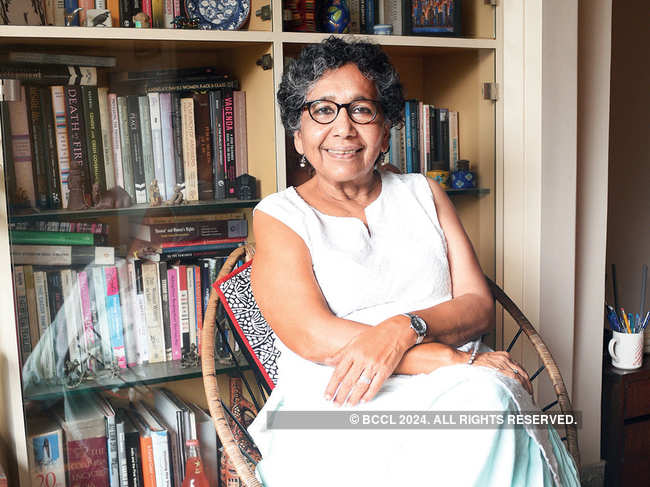
I am starting with a slightly personal question — how do people typically respond when they learn you are single? And has that reaction changed over the years?
The ‘cutoff point’ for most women is the mid-30s. Till then, they still think you are going to get married, and I think most women themselves think so, too. They think it is inevitable. After you have crossed that, it starts sinking in that you are not going to get married. I am fortunate in that I had a very liberal father and immediate family. And there are many single women in journalism, too, so I was inured. But there are women who find it much tougher, face much more scrutiny and have a critical gaze on them all the time.
What role does class and caste play in women’s decision to stay single?
Generally, and as is evidenced by the women who have written in the anthology, women from a slightly privileged class have a greater degree of autonomy, though that is not across the board. It depends a great deal on the world view of the parents, and also on the ability to be financially independent. For many women who are not financially independent, there is not much of an option beyond getting married and moving out of their parents’ home. In terms of caste, it is an additional burden, as (Tamil writer) Bama points out in her essay — when you are a woman, single and from a lower caste. That is something many of us born into privilege can’t even imagine. But the sense that you have to get married after a certain age is expected of women, across caste, community and class. It is changing, but not fast enough.
What has Bama (a Dalit Christian) written about her experience of choosing to remain single?
She was clear early on in life that she was not going to get into a marriage. She is a teacher, and she even became a nun for a while. The experience that she describes in her essay is searing — there is no other adjective for it. Here is a woman who is accomplished, recognised as a writer. Yet, in the society that she lives in, she is still seen as a woman, and a Dalit. She decides to build her own house because renting had become problematic. Even after that, all her actions are subject to close scrutiny by the villagers. But she remains positive about her decision, which is extraordinary.
In your introduction, you mention there are several common threads in the 12 essays. What are some of them?
One is supportive parents. That is very important in all our lives — that our parents trusted us to make our own decisions. Second, our professions — that we are doing something that gives us a lot of satisfaction has made a difference to our lives. It creates for you a community within which you exist. You are not isolated. Financial independence is definitely a big factor for being happily unmarried. And they all speak about the support groups you form, though not necessarily of unmarried women.
According to the 2011 Census, we have more single women than ever before, including those who have been divorced or widowed. Is our society reshaping itself to reflect that change?
The simple answer is no. Because patriarchy is so deeply embedded in Indian society — in our family, in our politics, in our culture. Society denies women something as fundamental as their agency — the right to decide who to get married to, when and for how long. It is 2019 but we are reading about a father killing his daughter in broad daylight in Mumbai because she married somebody from another caste. And these are just the public instances we hear of. That is because deep down, the mindset that determines the value of a woman has not altered.
What about pop culture and how single women are being portrayed there, from films to web series?
Some of it is dysfunctional in my view. Female autonomy is being equated with and restricted to the freedom to get drunk and have multiple sexual partners. That is stereotyped into this. It is very sad that popular culture is reducing female autonomy to this.
There was a Newsweek cover story in the 1970s that suggested it was finally possible for women to be ‘single and whole’. How far are we from that?
If by ‘whole’ you mean contented, the women who have written the essays in Single By Choice most certainly are. There is a very big misconception that single women aren’t contented, and that has been busted in many of the essays, including in Sharda’s (sports journalist Sharda Ugra). First of all, in India, it is very hard to be alone. You have too many people around here. And people forget that so many of us have been caregivers for parents. We also ‘inherit’ the children of our siblings and become almost co-parents. As Sharda says, we become PANKS — Professional Aunt, No Kids.
Having spoken to various single women for this book, what were some of the biggest revelations for you?
I was both impressed and grateful that these 12 women have been so honest in their writing. There is no artifice in any of the essays. Then there is the humour and the fun, the sense of joy they have in life. Even Bama, who has been through so much, talks about how she can sing and dance and eat whatever she wants, without being constrained by anybody or anything. That is how it was in my life, but I didn’t imagine it would be so prevalent. It was reaffirming to know that.










 Get Unlimited Access to The Economic Times
Get Unlimited Access to The Economic Times
